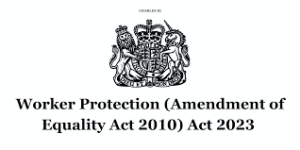

All content © HRadviser 2022
The Supreme Court has given its Judgment in Chief Constable of Police Service of Northern Ireland v Agnew.
The employee was successful in claiming for historic underpayments of holiday pay even though there are gaps of more than three months between deductions.
The Claimants had brought claims for underpayment of holiday pay after having historically received basic pay only during periods of annual leave. The parties agreed that there had been an underpayment and that holiday pay should have been calculated to include periods of compulsory overtime. The issue before the Supreme Court was how far back the Claimants were entitled to go with their claim. The provisions of the relevant Northern Irish legislation (which mirror the Employment Rights Act 1996) made it clear that a claim could only be made in respect of a payment made in the three months before the claim was brought, unless the deduction was part of a series, in which case the deductions could be linked together provided that the claim was brought within three months of the last of the series of deductions.
In a previous ruling in Bear Scotland v Fulton, the EAT had previously concluded that deductions could only be linked in a series if there was a gap of three months or less between each deduction.
The Supreme Court in Agnew has now held that where a series of deductions are all based on an employer failing to properly meet its obligations to pay holiday correctly and, but for the mandatory cut off after 3 months which was set out in Bear Scotland, they would otherwise constitute a series, employees should be able to link each deduction. To hold otherwise would produce unfair consequences.
It should be remembered that the impact of this judgment is mitigated for employers by the fact that claims for unlawful deductions from wages under the Employment Rights Act 1996 can now only look back at deductions over a maximum period of two years, although that two-year backstop is now liable to challenge.
Latest blog posts:

All content © HRadviser 2022